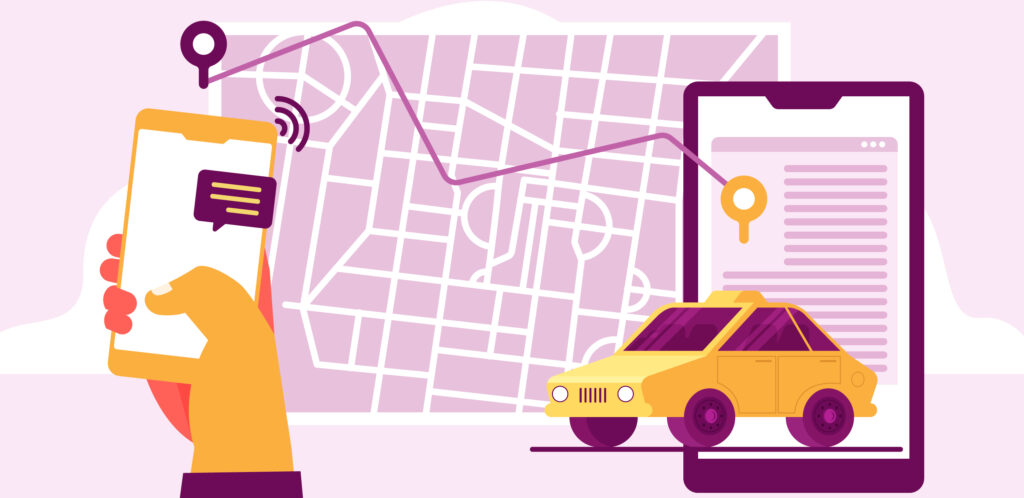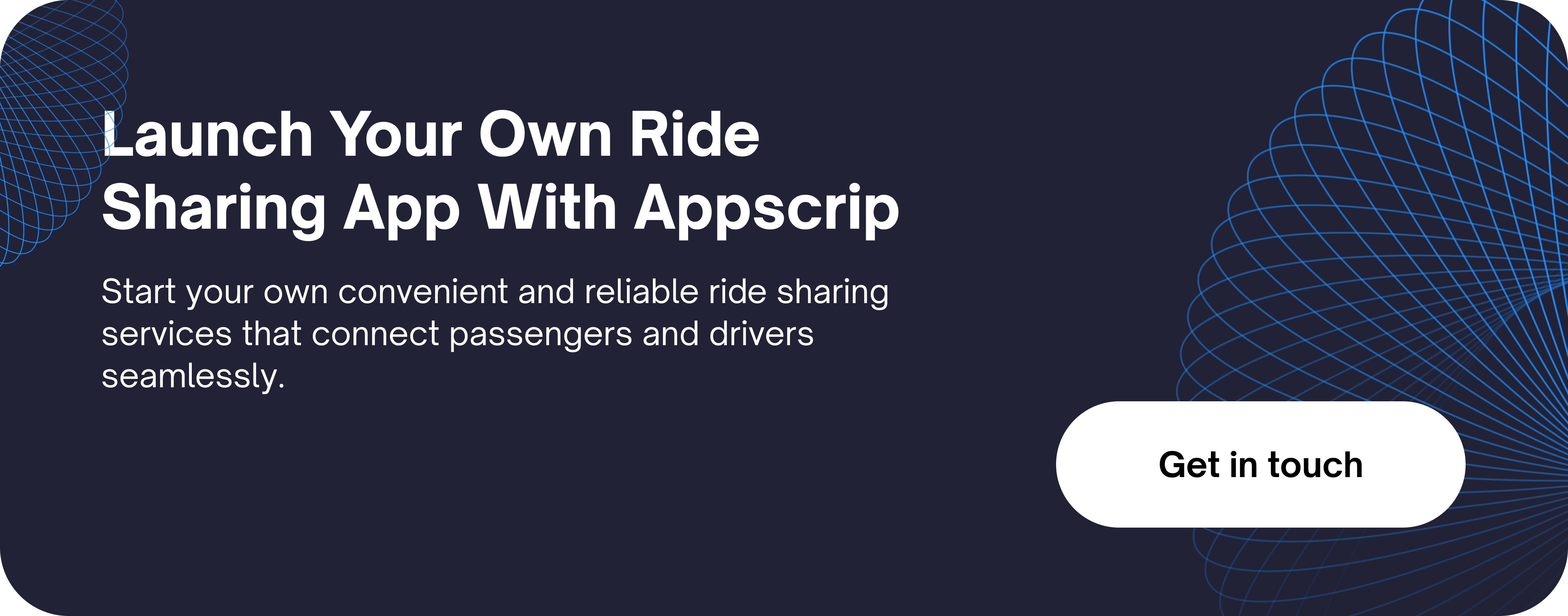The rise of ride-sharing heralded a new era of accessibility and convenience in the transportation sector. Ride-sharing apps connect passengers with drivers who are willing to take them to their desired destinations, and multiple riders going in the same direction can share a single vehicle.
This approach not only makes the cost of travel more affordable for passengers but also helps reduce traffic congestion and carbon emissions.
The way we commute and our expectations of taxi services have both been revolutionized by the rise of ride-sharing apps.
The Best Ride-sharing Apps in Atlanta
These are some of the best ride-sharing apps in Atlanta. Lyft, Uber, Curb, Wingz, and Gett are used by a lot of commuters in Atlanta and have an increasing user base.
Lyft
Founder: Logan Green and John Zimmer.
Inception and Total Funding: Founded in 2012. Funding $4.9 billion.
Business Model: Lyft has a diversified business strategy that includes subscription and commission fees, as well as surge pricing, to generate revenue. This strategic combination of models provides for reliable earnings and allows the firm to respond to shifting market conditions.
Unique Selling Proposition: Lyft stands apart from the competition because of its dedication to offering safe and hassle-free ride-sharing services by connecting drivers and passengers through a streamlined smartphone app.
Brief on the App with Revenue Details: The Lyft app has changed the transportation industry by providing a convenient way for passengers and drivers to connect. Subscription fees, surge pricing, and rider commissions are just a few of the ways that the app makes money.
Lyft has achieved remarkable success among ride-sharing apps in Atlanta thanks to its user-friendly interface and streamlined operations. Lyft is now worth over $3.2 billion, and the company has over 4500 dedicated employees.

Wingz
Founder: Christof Baumbach, Geoff Mathieux and Fred Gomez.
Inception and Total Funding: Founded in 2011. $11 million.
Business Model: Wingz uses a novel business strategy. It’s a ride-sharing app that facilitates prearranged journeys between individual riders and individual drivers. The business makes money by charging drivers and riders a fee for their services.
Unique Selling Proposition: Unlike other ride-sharing services that provide on-demand services, Wingz allows its users to schedule rides in advance.
Brief on the App with Revenue Details: The Wingz app is simple and straightforward, which makes booking a ride a snap. Users can choose their drivers of choice, plan rides ahead of time, and save their favourite routes and drivers for future rides. They have an annual revenue of around $6.5 million.
Curb
Founder: Sanders Partee, Tom DePasquale, and Matt Carrington.
Inception and Total Funding: Founded in 2018. Funding $50 million.
Business Model: Curb has a basic yet efficient business concept. Through its app, it introduces customers to licensed taxi and for-hire drivers. They make money by taking a cut of the fares paid by riders.
Unique Selling Proposition: Curb’s USP is that it only works with licensed taxi drivers, as opposed to unlicensed ones, making for a more controlled and secure journey. In addition, unlike other on-demand ride-sharing apps, it allows for advance booking.
Brief on the App with Revenue Details: The Curb app is simple to use and allows riders to request rides in an instant or plan ahead up to 24 hours. It serves as a hub connecting customers in major U.S cities to a network of over 50,000 taxis and town vehicles.
Curb has an annual revenue of up to $13.1 million. The company makes revenue through a combination of rider fees and in-app advertising.
Gett
Founder: David Waiser.
Inception and Total Funding: Founded in 2010. Funding $83 million.
Business Model: Gett’s business strategy is what sets it apart from other ride-sharing apps. Rather than maintaining its own fleet, the company works with other transportation providers. Gett can expand rapidly while maintaining low overhead and maximizing profits thanks to its business model.
Unique Selling Proposition: Gett’s focus on quality and convenience is what sets it apart from the competition. The organization takes great pleasure in the quality and dependability of the service it provides. This is seen in how carefully it chooses taxi companies to work with and in how seriously it takes customer satisfaction.
Brief on the App with Revenue Details: The Gett app is a hub that connects users to safe and dependable local taxi services. It provides a streamlined booking process, accurate tracking in real-time, and safe payment methods. Recent estimates put Gett’s yearly revenue at $98.8 million, attesting to the app’s widespread use and the success of the company’s business model.

Uber
Founder: Garrett Camp and Travis Kalanick.
Inception and Total Funding: Founded in 2009. Funding $15.8 billion.
Business Model: Uber is a ride-sharing company that functions as a digital platform connecting drivers and riders. The company’s novel methodology allowed it to displace conventional cab services and capture a sizable portion of the market.
Unique Selling Proposition: Uber’s USP lies in its convenience and ease of use. The service enables users to book a ride with a simple click, making transportation easily accessible in urban areas.
Brief on the App with Revenue Details: The Uber app functions as a bridge between drivers and users looking for a ride. The app matches you with a nearby driver who is using their vehicle to provide the ride-sharing service. As of 2023, Uber has a valuation of more than $96 billion.
Conclusion
The ride-sharing apps offer an affordable and easily accessible alternative to traditional taxi services. It links commuters with drivers using cutting-edge digital platforms, making transportation simpler for everyone involved. The ride-sharing app plays a crucial role in this setup, connecting drivers and riders.
With advanced fleet management features, custom fare configurations, and the ability to run campaigns, Appscrip’s ride-sharing app solutions allow you to build customized apps aligned with your company’s branding. Ready to revolutionize the ride-sharing industry with a cutting-edge application? Contact Appscrip now!










